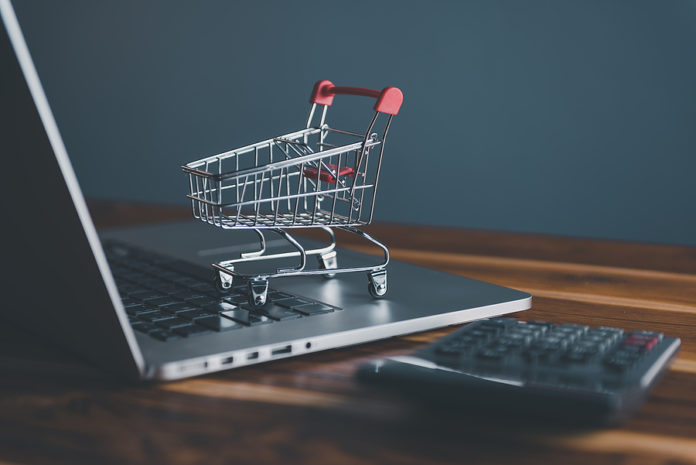
By Yoav Kutner, CEO of B2B eCommerce platform OroCommerce
At first glance, the food and beverage industry might not look like a hotbed of digital innovation — but the reality is that even before COVID struck, food and beverage brands were moving online to serve their customers and drive future growth. Online sales for U.S. food and beverage brands were expected to double between 2017 and 2021, reaching more than $24 million — and that’s not counting the impact of the pandemic ecommerce boom.
Today, F&B giants such as Unilever are building dedicated teams of hundreds of people to carry their ecommerce efforts forward — and their goal is not just to capitalize on consumers’ embrace of ecommerce, but to use digital selling to drive growth across B2B channels, too. The result: it’s expected that in coming years ecommerce’s share of the food and beverage market will grow tenfold, from 2% of the market in 2016 to as much as 20% by 2025.
That raises an important question for today’s food and beverage brands: are they doing enough to ride that wave? And what do food and beverage brands need to do now to ensure the ecommerce boom drives growth for their business in coming years?
Ecommerce isn’t a silver bullet
One key thing that food and beverage brands need to realize as they tiptoe into the world of digital commerce is that selling online isn’t a silver bullet. The big challenges that the industry faces — from supply chain disruption, to labor shortages, to shifting consumer preferences — will continue to test companies as they move into the world of ecommerce.
What ecommerce can do, though, is give companies new tools with which to face up to those challenges. Find an ecommerce platform that’s designed for the needs of B2B businesses, and it’s possible to get an edge as you confront the challenges the food and beverage industry now faces.
To take one example: DTC sales are emerging as an important way for food and beverage brands to drive loyalty and boost revenues, but managing consumer-facing sales can be a big headache for brands that are used to operating as wholesale suppliers. A B2B-first commerce platform that also enables brands to operate DTC storefronts can join the dots across those two functions, helping brands to break into new business categories without having to build out major new operational capabilities.
5 ways to drive growth
So what should food and beverage brands look for as they venture into online commerce? The key is to realize that there’s more to building out a successful digital commerce strategy than simply sticking up a website and hoping for the best. Today’s consumers and B2B buyers are increasingly sophisticated and demanding, and they expect smart, feature-rich experiences when they buy online.
Here are 5 key capabilities you should look to bake into your digital selling operations:
-
Integration. Don’t treat your ecommerce operations as a standalone function. Instead, look to connect your ecommerce tools with your logistics, PIM, ERP, CRM, and other existing solutions. The key is to find ways to use ecommerce data to elevate the value that your other functions deliver, without overly complicating things or muddying the water for decision-makers across your organization.
-
Multichannel support. It’s important to recognize the areas where B2B aligns with consumer ecommerce — and the areas where it doesn’t. Make sure your online sales tools are robust and flexible enough for enterprise buyers — with the ability to handle complex orders, split shipments, and so forth — while also being flexible enough to handle DTC storefronts if you decide to go that route now or in the future.
-
Personalization. People have an intimate relationship with their favorite food and beverage brands, so don’t give them a generic, cookie-cutter experience when you sell to them online. Both consumer and enterprise buyers will appreciate personalized messaging, product catalogs, price lists, and so forth — and with appropriate customization, you’ll see brand loyalty and order volumes increase.
-
Scalability. It’s tempting to assume that you can build an ecommerce solution once, and never need to worry about it again. The reality is that the food and beverage industry will keep on evolving, and so will your ecommerce needs. Look to implement a flexible, scalable solution that can grow with your business over time, no matter how many SKUs or customers you have to deal with.
-
Easy implementation. Moving into ecommerce shouldn’t be a headache. The best digital commerce providers will offer not just support as you get started, but an ecosystem of third-party developers to help you meet new use-cases and implement new technologies. Pay attention to security, too: you’ll need ongoing bug fixes and patches to keep your operations safe over time.
Put these elements together, and it’s possible for food and beverage brands to develop a smart, effective ecommerce function that aligns with their existing offline operations, and positions them to succeed in today’s turbulent and complex business landscape.
Aim high
For forward-looking food and beverage brands, it’s critical to seek ways not just to ride the latest and greatest tech trend forward, but also to find ways to leverage new technologies to fuel growth and truly future-proof their operations.
That means leaning into ecommerce, yes. But it also means viewing ecommerce not simply as a channel that can be patched onto existing offline sales operations, but rather as an opportunity to elevate both your internal operations and your customers’ experience.
To achieve that, companies need to aim higher than simply sticking a webstore up online. The goal should be to integrate digital commerce into your broader operations, unlocking value for both your company and your customers. Think strategically about how to leverage digital commerce, and find the right partners to guide your B2B and DTC sales, and you’ll have the chance not just to overcome new challenges, but to position yourself for growth now and in the future.
 Yoav Kutner is the CEO and co-founder of Oro, Inc, which has created OroCommerce, the No.1 open-source eCommerce platform built for distributors, wholesalers, brands, and manufacturers. Yoav previously co-founded and served as the CTO of Magento.
Yoav Kutner is the CEO and co-founder of Oro, Inc, which has created OroCommerce, the No.1 open-source eCommerce platform built for distributors, wholesalers, brands, and manufacturers. Yoav previously co-founded and served as the CTO of Magento.







